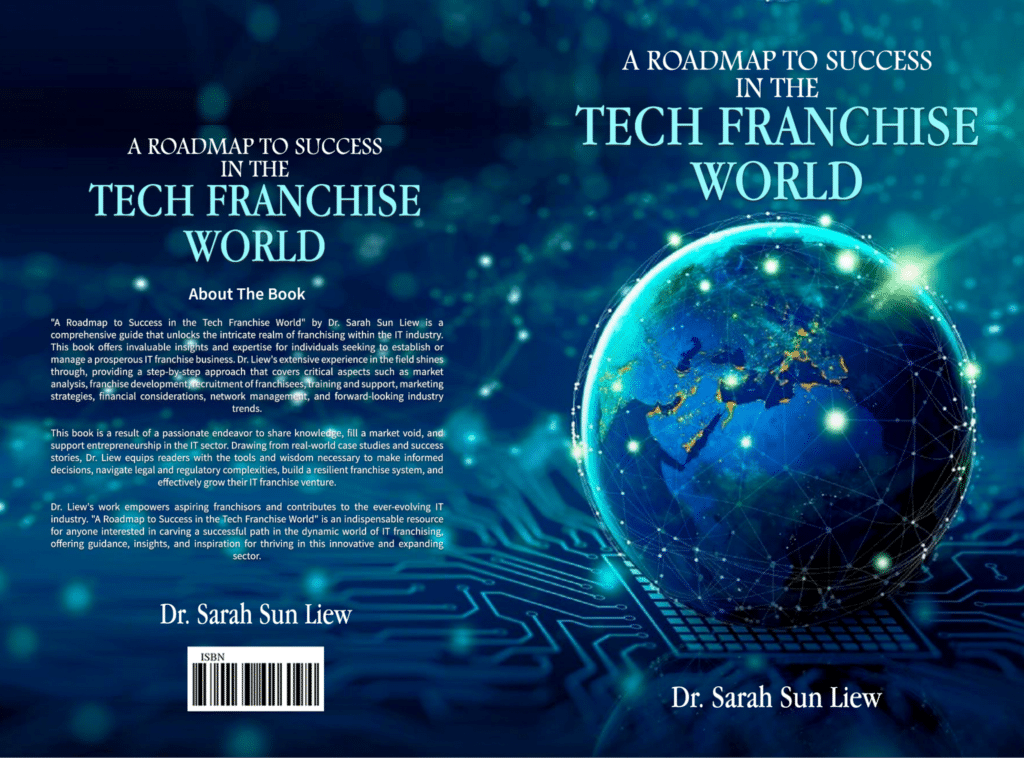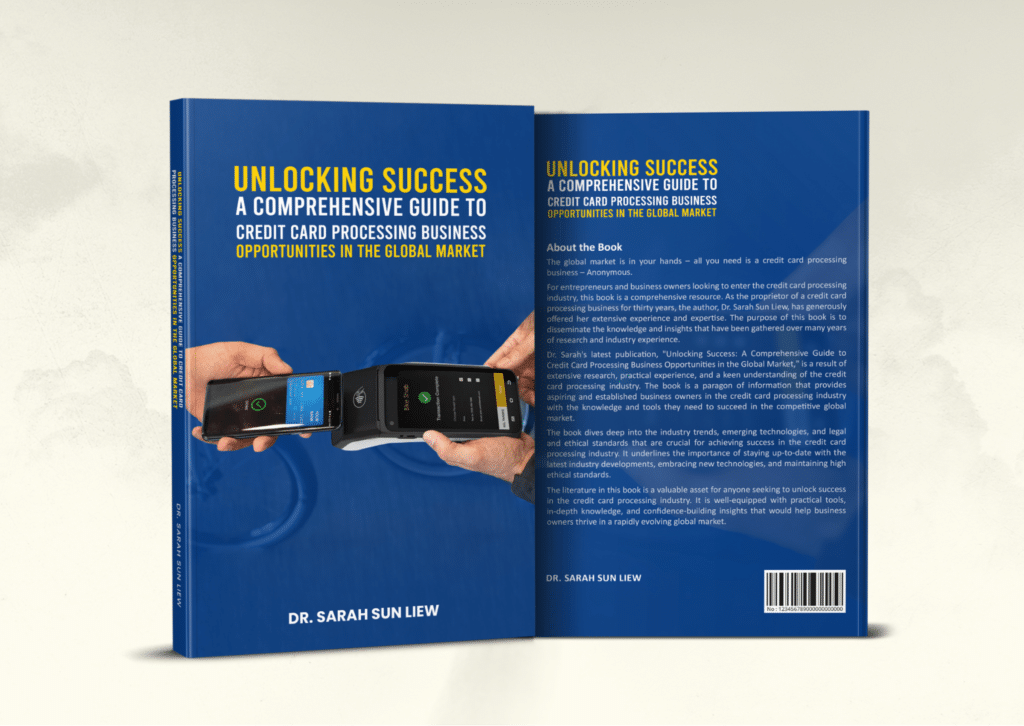The technology landscape is evolving at an unprecedented pace, placing IT franchise owners and managers at a pivotal intersection between embracing digital innovation and fostering sustainable growth. “A Roadmap to Success in the Tech Franchise World,” particularly in its illuminating Chapters 26 through 31, provides a comprehensive blueprint for franchise leaders to navigate the intricate complexities of modern IT franchising. This section of the book offers profound insights into digital transformation, sustainable growth, leadership dynamics, strategic exit planning, and the guiding principles that bring these elements together to promote long-term franchise success.
Chapter 26: Embracing Digital Transformation for Competitive Advantage
Chapter 26 opens with a deep dive into the transformative potential of digital technology for IT franchises. In today’s hyper-connected world, digital transformation is not merely a competitive advantage—it’s a necessity for maintaining relevance. This chapter underscores the significance of integrating advanced digital tools, such as cloud computing, artificial intelligence (AI), and machine learning, into franchise operations. These tools not only automate routine tasks but also drive data analytics and predictive insights, empowering franchise leaders to make more informed decisions and streamline workflows.
The discourse in Chapter 26 also touches on the importance of aligning digital strategies with core business objectives. For instance, while cloud computing enhances operational flexibility and data security, AI-powered customer service solutions like chatbots can vastly improve client interactions. The chapter advocates for franchises to embrace digital transformation as a means to improve service efficiency, personalize customer experiences, and ultimately reduce costs. By setting clear digital goals that align with their strategic vision, franchise owners can harness technology to stay agile and responsive to industry shifts.
Chapter 27: Building Sustainable Growth Through Social Responsibility
Transitioning into Chapter 27, the book highlights the growing importance of sustainability within IT franchising. Sustainable growth in the tech industry is twofold: it involves not only economic profitability but also a strong commitment to environmental responsibility and social impact. Chapter 27 emphasizes that incorporating eco-friendly technologies and minimizing waste through efficient practices can contribute to a franchise’s longevity. By adopting green technologies, such as energy-efficient servers and electronic recycling programs, franchises not only cut operational costs but also build a brand reputation that resonates with today’s environmentally conscious consumers.
In addition to environmental sustainability, the chapter discusses corporate social responsibility (CSR) as a driver for building customer loyalty and brand equity. CSR initiatives—such as community engagement programs, fair labor practices, and supporting local suppliers—enable franchises to connect with their communities and build a positive public image. Chapter 27 emphasizes that sustainability and CSR are not just ethical obligations; they are strategic investments in a franchise’s future, creating a sense of purpose that attracts customers, talent, and even potential investors.

Chapter 28: Leadership Dynamics in the IT Franchise Landscape
Chapter 28 delves into the critical role of leadership in steering an IT franchise toward long-term success. In a rapidly evolving industry, effective leadership requires adaptability, clear vision-setting, and strong communication skills. This chapter identifies transformational leadership as particularly well-suited to the demands of the IT sector. Transformational leaders inspire their teams to innovate, take ownership, and pursue continuous improvement, cultivating a proactive and motivated workforce.
The chapter also highlights the importance of fostering leadership at all levels through mentorship programs and ongoing training. By investing in future leaders, franchises create a culture that values growth and adaptability. Chapter 28 also emphasizes the need for leaders to embrace transparency and foster open communication channels. When leaders actively listen and involve employees in decision-making, they create a collaborative environment where team members feel valued and engaged. This chapter serves as a reminder that impactful leadership extends beyond managing daily operations; it involves creating a forward-thinking, supportive culture that enables both the franchise and its employees to thrive.
Chapters 29 and 30: Crafting Exit Strategies and Succession Planning
Chapters 29 and 30 address a crucial yet often overlooked aspect of franchising: exit strategies and succession planning. Recognizing the need for careful planning in ownership transitions, these chapters offer franchise owners guidance on managing the succession process while maintaining business continuity. A well-thought-out exit strategy ensures that a franchise’s legacy and operations continue smoothly, whether the owner plans to sell the franchise, pass it on to a family member, or hand it over to a capable internal successor.
Succession planning, as outlined in Chapter 29, is best approached early, allowing owners ample time to identify and groom potential successors. This process can involve either selling to an external buyer or transferring ownership within the organization. Both approaches have their advantages and challenges, and the chapters provide practical advice on making an informed choice that aligns with the franchise’s goals. Chapter 30 also addresses the emotional aspects of transitioning ownership, recognizing that the exit process is often accompanied by feelings of attachment and apprehension. To mitigate these challenges, the book recommends creating a gradual transition plan that allows both outgoing and incoming leaders to adapt.
Legal and financial considerations are also covered in detail, emphasizing the importance of preparing essential documents, securing valuations, and consulting legal and financial experts. These steps ensure that the transition is as smooth and beneficial as possible for all stakeholders involved, preserving the franchise’s value and legacy for the future.

Chapter 31: Synthesizing Success Strategies for the IT Franchise Journey
The concluding Chapter 31 brings together the themes explored in previous chapters, providing readers with actionable insights for thriving in the IT franchise industry. It reinforces the idea that success in IT franchising requires a blend of continuous learning, strategic foresight, and adaptability. The chapter encourages franchise owners to build a supportive network, including mentors, industry experts, and peers, who can provide guidance and support.
By fostering a collaborative network, franchise owners can stay informed about industry trends and share best practices with like-minded professionals. Chapter 31 also highlights the value of embracing technological advancements responsibly and balancing innovation with sustainability. This final chapter reminds readers that while growth and profitability are important, the best franchises prioritize ethical standards and social responsibility, building a business that not only thrives financially but also contributes positively to its community and industry.
Key Takeaways from Chapters 26-31: A Comprehensive Guide for IT Franchise Success
The insights provided in Chapters 26-31 of “A Roadmap to Success in the Tech Franchise World” offer franchise owners a comprehensive toolkit for navigating the complex and competitive IT landscape. Each chapter presents a unique perspective on achieving success, from embracing digital transformation to establishing responsible leadership practices. Together, these chapters serve as a roadmap that equips franchise owners with the knowledge and strategies needed to thrive in an industry defined by rapid technological change.
Digital Transformation: Embracing digital innovation is essential for remaining competitive in today’s IT industry. By integrating tools like cloud computing, AI, and machine learning, franchises can enhance operational efficiency, improve customer experiences, and make data-driven decisions that fuel growth.
Sustainable Growth and CSR: Building a sustainable business involves not only minimizing environmental impact but also investing in social responsibility. By adopting eco-friendly technologies and supporting community initiatives, franchises can foster long-term growth and enhance their brand reputation.
Leadership and Team Development: Effective leadership is about more than directing operations; it involves inspiring teams, fostering a culture of innovation, and preparing future leaders. Transformational leadership practices, such as transparent communication and mentorship, can motivate teams to exceed expectations.
Exit Strategies and Succession Planning: Planning for ownership transition is essential for a franchise’s continued success. Whether transitioning to an external buyer or a successor within the organization, a well-structured plan preserves the franchise’s value and ensures business continuity.
Network Building and Continuous Learning: A successful franchise journey is supported by strong networks and a commitment to continuous learning. Engaging with mentors, peers, and industry experts enables franchise owners to stay updated on trends, share knowledge, and navigate challenges with confidence.
Conclusion: Empowering Franchise Owners for Long-Term Growth
Chapters 26-31 of “A Roadmap to Success in the Tech Franchise World” offer a wealth of guidance for IT franchise owners and managers striving for sustainable growth, innovation, and resilience. By addressing critical themes such as digital transformation, sustainable practices, leadership development, and strategic succession planning, these chapters equip franchise leaders with the tools needed to build a successful, responsible, and future-ready business.

For further insights on Dr. Sarah Sun Liew’s approach to franchise management, innovation, and strategic growth:
- Visit her author profile at wikitia.com/wiki/Dr._Sarah_Sun_Liew
- Contact directly at (424) 343 7025 or (424) 777 6461
- Email her at Mgroupbh7@gmail.com for consultation on navigating the IT franchise landscape
Through thoughtful planning, continuous adaptation, and a commitment to ethical practices, franchise owners can achieve not only financial success but also make a lasting, positive impact on their communities and industry.
Published by: Khy Talara








